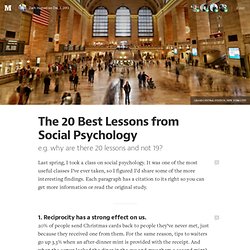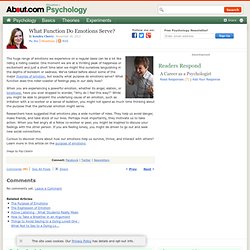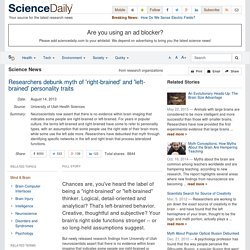

An Appeal to Our Inner Judge - NYTimes.com. Photo Preoccupations By HOWARD J.

ROSS Some months ago I was in the Memphis airport preparing to fly to New York. An Appeal to Our Inner Judge - NYTimes.com. Photo.

The 20 Best Lessons from Social Psychology. 1.

Reciprocity has a strong effect on us. 20% of people send Christmas cards back to people they’ve never met, just because they received one from them. For the same reason, tips to waiters go up 3.3% when an after-dinner mint is provided with the receipt. How to Disagree, Win Arguments, and Not Create Enemies. The web is turning writing into a conversation.

Twenty years ago, writers wrote and readers read. Now, the Internet lets people respond, and increasingly they do: in comment threads, on forums, and in their blog posts. Socionics – Intertype Relationships: A Brief Description. Identity Two like-minded partners who strive to occupy similar social niches.

Understand each others motives and goals and easily become jealous of each other’s successes, especially if partners have the same social status. Good for occasionally touching base and sharing experiences, and for teaching purposes — if one partner is older and more experienced. Difficult for doing multi-faceted tasks together; partners quickly tire of each other, and cooperation tends to break down if they have the same status. Partners tend to talk only on subjects related to their mutual strengths and avoid other topics. Personality Types – Clarifying, Breaking it Down, and Making Sense of it All. The cutting edge of brain science technologies. National Geographic has an excellent article that gives a tour of some of the latest technologies of neuroscience that are likely to be leading the way in understanding the brain over the next decade.

You can read the full article online but you need to complete a free registration first. 5 Things Your Brain Needs More Of Every Day. The things we put into our bodies have a gigantic effect on the way that we feel.

While it's obvious that a salad for lunch will give us more energy in the afternoon than a plate of cheese fries, there's a whole range of consumables--via eating, drinking, or otherwise--that can boost your alertness, awareness, and productivity. Some of these things you're probably already doing, like drinking tea. Personality Types – Clarifying, Breaking it Down, and Making Sense of it All. Neuroscience of Personality. What Function Do Emotions Serve? The huge range of emotions we experience on a regular basis can be a lot like riding a rolling coaster.

One moment we are at a thrilling peak of happiness or excitement and just a short time later we might find ourselves languishing in the depths of boredom or sadness. We've talked before about some of the major theories of emotion, but exactly what purpose do emotions serve? What function does this roller-coaster of feelings play in our daily lives? When you are experiencing a powerful emotion, whether its anger, elation, or loneliness, have you ever stopped to wonder, "Why do I feel this way? " The 12 cognitive biases that prevent you from being rational. What Is Memory?
Historical Geniuses and Their Psychiatric Conditions - Kathy Benjamin. Michelangelo would be on the autism spectrum, and other compelling cases for retroactive diagnoses in 11 of history's great minds Studies have shown that there are much higher instances of mental disorders in political leaders and creative geniuses than in the general population.

While it's impossible to be sure of a hindsight diagnosis of a historical figure, that hasn't stopped researchers from educated speculation. Abraham Lincoln - Depression? The Great Emancipator managed to lead the country through one of its more trying times, despite suffering from severe depression most of his life. According to one Lincoln biographer, letters left by the president's friends referred to him as "the most depressed person they've ever seen.
" Hell! Ludwig von Beethoven - Bipolar Disorder? Researchers debunk myth of 'right-brained' and 'left-brained' personality traits. Chances are, you've heard the label of being a "right-brained" or "left-brained" thinker.

Logical, detail-oriented and analytical? That's left-brained behavior. Creative, thoughtful and subjective? Your brain's right side functions stronger -- or so long-held assumptions suggest. The Brain and Why Innovation Gets Rejected. Tell me if this sounds familiar: You’ve been working on a project or assignment and you have a breakthrough idea. Maybe it’s about what you’re working toward or maybe about something else entirely. Excited, you go and tell your boss or your team during your next meeting, expecting praise for your innovative thinking. What you get is careful, measured responses at best and outright rejection at worst. Why is this? Are others at your organization simply not forward thinking? Researchers from Cornell, Penn and the University of North Carolina completed a landmark study around our perceptions about creative ideas when faced with uncertainty.
Tales of the Lone Arranger. Welcome to “Tales of the Lone Arranger.” Tales of the Lone Arranger is be about troubled and troubling children I knew and counseled over the past 35 years, from a temperament point of view. You may recall, I use the terms Stars (Artisans), Squares (Guardians), Spheres (Idealists), and Cubes (Rationals) to describe the four Keirseyan temperaments of children. There are two reasons I chose the name “Tales of the Lone Arranger.” The first and most important is David West Keirsey. I learned in my continuing talks with Dr. The Ten Most Revealing Psych Experiments. Psychology is the study of the human mind and mental processes in relation to human behaviors - human nature. Due to its subject matter, psychology is not considered a 'hard' science, even though psychologists do experiment and publish their findings in respected journals.
'Losing yourself' in a fictional character can affect your real life. When you "lose yourself" inside the world of a fictional character while reading a story, you may actually end up changing your own behavior and thoughts to match that of the character, a new study suggests. Researchers at Ohio State University examined what happened to people who, while reading a fictional story, found themselves feeling the emotions, thoughts, beliefs and internal responses of one of the characters as if they were their own -- a phenomenon the researchers call "experience-taking.
" They found that, in the right situations, experience-taking may lead to real changes, if only temporary, in the lives of readers. In one experiment, for example, the researchers found that people who strongly identified with a fictional character who overcame obstacles to vote were significantly more likely to vote in a real election several days later. There are many ways experience-taking can affect readers.
Subliminal Effects. No Pain, No Gain: Why We Punish Ourselves. Thinking vs. Feeling: The Psychology of Advertising. Logic+Emotion. Psychology. 10 More Amazing Facts About Dreams. Humans Every year scientific groups and national organizations conduct studies and experiments examining human dreams. The study of dreams is known as oneirology. Subliminal Messages - Hidden Subliminal Image Samples - Do you get the hidden subliminal message? It's evolution: Nature of prejudice, aggression different for men and women. Prejudice against people from groups different than their own is linked to aggression for men and fear for women, suggests new research led by Michigan State University scholars.
The researchers report that, throughout history, men have been the primary aggressors against different groups as well as the primary victims of group-based aggression and discrimination. "There is evidence going back thousands of years of bands of men getting together and attacking other bands of men, eliminating them and keeping the women as the spoils of war," said Carlos David Navarrete, evolutionary psychologist at MSU. Into the mind of a Neanderthal - life - 18 January 2012. Read full article Continue reading page |1|2. Do You Know Your Users? Introducing Behavioral Personas. Study: Animals Have Social Networks Too.
We recently found out that 14% of Facebook users have created a profile for their dogs, but a new study shows that isn’t the only form of social networking you’re going to find among animals. According to the Daily Mail our use of social networks is just another small link to us and the animals. The Illusion of Asymmetric Insight. The Misconception: You celebrate diversity and respect others’ points of view. The Truth: You are driven to create and form groups and then believe others are wrong just because they are others. Twelve Things You Were Not Taught in School About Creative Thinking. Bored Office Workers More Likely To Drink Coffee, Eat Chocolate, And Drink Alcohol. The Business Case for Reading Novels - Anne Kreamer. Left brain vs. right brain. A Group Is Its Own Worst Enemy.